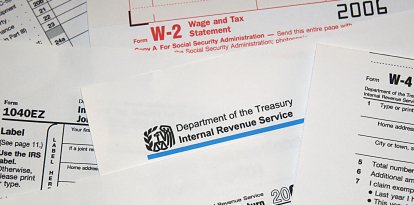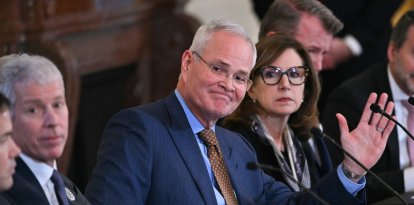Bidenomics: the deficit soars by $400 billion compared to what was expected in February
The Congressional Budget Office warns that measures are needed to prevent the numbers from worsening over the next decade and points out that economic growth is slowing.

(Eva HAMBACH/AFP)
Money is pouring out of Biden, and he is putting the future - and the present - of the American economy at risk. The Congressional Budget Office (CBO) warned in a report that the annual deficit has skyrocketed to $1.9 trillion, $ 400 billion more than expected in February. The forecast of this organization is that the deficit, despite Biden's proclamations that he is reducing it and will continue to do so, will skyrocket to 2.8 trillion in a decade if measures are not taken. In addition, the organization confirmed a slowdown in the national economy, placing the annual growth of the Gross Domestic Product (GDP) at 2%, compared to 3.1% in 2023.
The deficit skyrocketed due to aid to Ukraine, Israel and Taiwan
The Office explained that the deviation compared to February is mainly due to the approval of laws with aid to Ukraine, Israel and Taiwan. In addition, it warns that these rules will cause discretionary disbursements for a decade.
The deficit, above 5.5% in the next decade
In percentage terms, the 2024 deficit figures represent 7% of the Gross Domestic Product. According to CBO forecasts, in the next decade the percentage will not drop below 5.5% of GDP, when the average over the last 50 years had been 3.7%.

CBO
Growth
This is not the only bad news for the US economy. CBP data confirms that the economy is slowing and will grow 2% in 2024 compared to 3.1% last year. The Office's projection is that growth will remain between 2 and 1.8% in the coming years, and indicates that immigration will continue to grow and drive the country's economic growth.

CBO
Inflation, the good news
The good news came in the face of one of the issues that most worries Americans: inflation. The CBO estimates that it will stabilize at 2.7% throughout 2024 (it is at 3.3% year-on-year at the moment) and that it will continue to reduce until it reaches the 2% target set by the Federal Reserve for 2026.

CBO
























